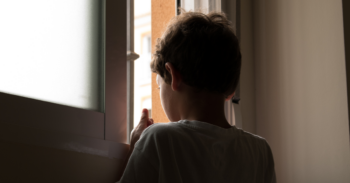 Ofsted’s annual report, released yesterday, has disclosed that it managed only one prosecution of an illegal (‘unregistered’) school in England in 2021/22, despite having opened more than 100 new investigations this year alone. Indeed, there have only been six successful prosecutions in six years. Ofsted lays the blame for this poor success rate firmly at the hands of the current law, which fails to provide inspectors with sufficient powers. It has again called for a new law to shut them down, much as was going to happen under the Schools Bill but that has now been abandoned. Humanists UK endorses the call.
Ofsted’s annual report, released yesterday, has disclosed that it managed only one prosecution of an illegal (‘unregistered’) school in England in 2021/22, despite having opened more than 100 new investigations this year alone. Indeed, there have only been six successful prosecutions in six years. Ofsted lays the blame for this poor success rate firmly at the hands of the current law, which fails to provide inspectors with sufficient powers. It has again called for a new law to shut them down, much as was going to happen under the Schools Bill but that has now been abandoned. Humanists UK endorses the call.
The plans were crucial because a significant number of unregistered, illegal schools continue to operate throughout England. Many of these are religious, and there are at least 6,000 children who attend them. In many cases, children are made to study religious texts for up to 12 hours a day with no maths, science, or other secular subjects; they are often exposed to extremist literature; and many settings operate in environments that are dirty and unsafe. Physical and sexual abuse is sadly widespread.
After more than eight years’ campaigning led by Humanists UK, the UK Government finally published draft legislation in the Schools Bill earlier this year – only to abandon it last week. Part 3 of the Bill would have introduced a register of children educated at home, which would close the ‘sham home education’ loophole exploited by proprietors of illegal schools. Meanwhile Part 4 would have granted Ofsted greater powers to investigate suspected settings, and greater prosecutorial powers.
Ofsted states that it still hopes the Government’s ‘proposals in the Bill will come to pass, and help prevent groups that educate children illegally from putting more children in danger.’
The Ofsted annual report is not just about illegal schools – it covers all aspects of the inspectorate’s work, from early years to further education. Also of interest to Humanists UK was a section specifically looking at (legal) independent faith schools, which once again highlighted that they have particularly poor inspection scores – usually due to a narrow curriculum focused on religious instruction. Such schools are also often found to not promote the so-called ‘British values’ of democracy, the rule of law, liberty, and respect for those of different faiths and beliefs. Upholding these values is required by law for all schools, whether state-funded or private. Humanists UK regularly hears from parents and others who are concerned about the teaching and ethos in independent faith schools, which have to follow less strict laws on curriculum content than state-funded schools.
Humanists UK Education Campaigns Manager Robert Cann said:
‘This report is further proof, if it were needed, that the Government simply must stick with the legislative plans laid out in parts 3 and 4 of the now-shelved Schools Bill. Ofsted does fantastic work uncovering the horrendous conditions that many thousands of children face in illegal religious schools, and then attempting to bring the proprietors to justice. But if its hands were not so tied, it could make sure that all such settings are closed for good.
‘As a society we owe it to our children to provide them with a broad and balanced curriculum in settings that promotes democracy, liberty, and respect for others, while keeping children healthy, happy, and safe. That more than 6,000 children in England are still being failed in this way by the Government – which got so close to finally taking action this year – is a national scandal. Along with Ofsted, we will be keeping the pressure up on the Government to change tack.’
Notes:
For further comment or information, media should contact Humanists UK Director of Public Affairs and Policy Richy Thompson at press@humanists.uk or phone 020 7324 3072 or 020 3675 0959.
Read Ofsted’s 2021/22 annual report.
Read more about our work on illegal schools.
Read our article on the Government dropping the Schools Bill.
Humanists UK is the national charity working on behalf of non-religious people. Powered by 100,000 members and supporters, we advance free thinking and promote humanism to create a tolerant society where rational thinking and kindness prevail. We provide ceremonies, pastoral care, education, and support services benefitting over a million people every year and our campaigns advance humanist thinking on ethical issues, human rights, and equal treatment for all.
